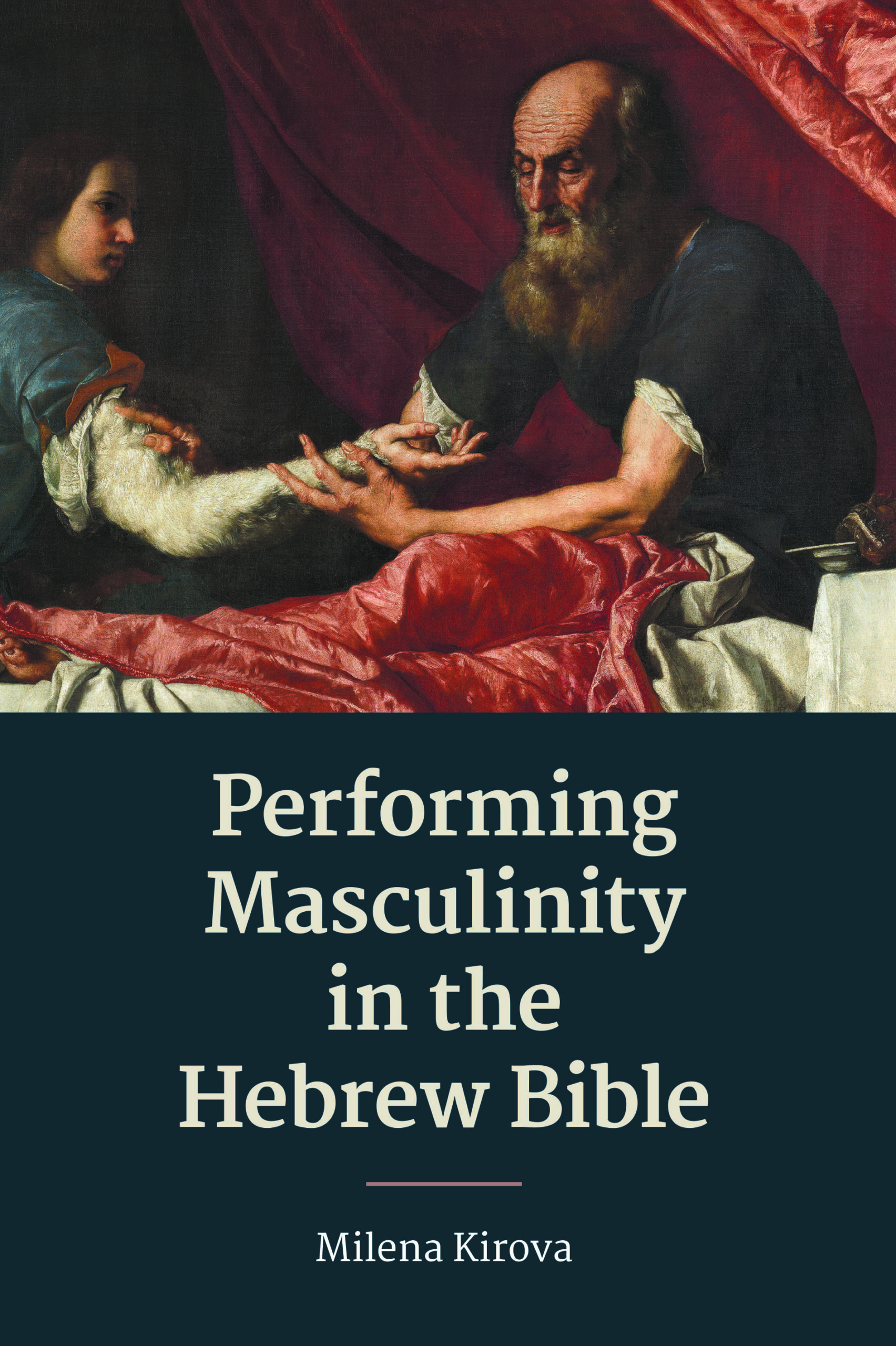Performing Masculinity in the Hebrew Bible
£65.00
In Performing Masculinity, the eminent Bulgarian literary critic Milena Kirova turns her attention to the Hebrew Bible, offering a reworking and condensation of two volumes of essays she published in Bulgarian in 2011 and 2017.
In Performing Masculinity, the eminent Bulgarian literary critic Milena Kirova turns her attention to the Hebrew Bible, offering a reworking and condensation of two volumes of essays she published in Bulgarian in 2011 and 2017. Her chapters, each with an attractive and stimulating title, present a distinctive voice in current debates about masculinity in the Hebrew Bible.
Masculinity studies have been developing during the last half a century, but there is still some opposition, not always conscious, to the field. Studies in masculinity in the Bible have an even shorter history and have created as yet little by way of a tradition among biblical scholars: it is a field still under development.
Kirova has researched a rich variety of narrative situations, poetic characteristics, and symbolic functions of biblical men. Her research here is especially focused on the regal roles ascribed to masculinity in the ancient world.
Among the intriguing questions Kirova poses are these: Why should heroes be beautiful? What is the benefit of weeping, and weeping eloquently? Why problematize what is ‘natural’? Who is the ‘bramble king’? The ten chapters of Performing Masculinity are deliberately interdisciplinary: anthropology, psychoanalysis, literary and gender studies complement biblical criticism. A variety of audiences will find the book a pleasure and an education.
Additional information
| table of contents | 1. The Perfect Body: An Essay on the Inconceivable 2. ‘As an apple tree among the trees of the wood’: Beauty and Perfection of Biblical Men 3. ‘I am a poor man and of no repute’: The Theme of the Youngest Brother 4. ‘The Symbolic Wound’: Ideology and Practice of Circumcision 5. ‘Real’ Shepherds and Pastoral Symbolism in the Hebrew Bible 6. The Bramble King: Banditry and Kingship in the Historical Books 7. When Real Men Cry: The Symbolism of Weeping in the Torah and the Deuteronomistic History 8. The Body in Action: The Builder King 9. ‘Gray hair is a crown of glory’: Old Age and Masculinity in the Hebrew Bible 10. Epilogue: Another Story—Another Man |
|---|---|
| author | |
| authors | |
| editors | |
| isbn | |
| list price (paperback) | |
| page extent | |
| publication | |
| publication date | |
| series | |
| table of contenta | |
| version |


Louise Clines –
Performing Masculinity in the Hebrew Bible creates an accomplished and consistent critical narrative on biblical masculinity. The book is written in a manner that grips the reader’s mind. It not only provides information on the Hebrew Bible but also articulates interpretative algorithms following a modern interdisciplinary methodology of gender research. Ivan Stankov, University of Veliko Turnovo, Bulgaria, in Aspasia. The International Yearbook of Central, Eastern, and Southeastern European Women’s and Gender History.
Andrew Montanaro, Catholic Biblical Quarterly. –
K[irova]. presents a perceptive commentary on a unique set of underexamined aspects of masculinity in the Hebrew Bible, including men’s roles as shepherds, bandits, and builders. … Kirova employs an important methodological maneuver whereby she resists imposing categories employed by post/modern social sciences onto ancient perspectives without careful consideration. In this regard, her chapter on weeping (see below) can be seen as the most important.